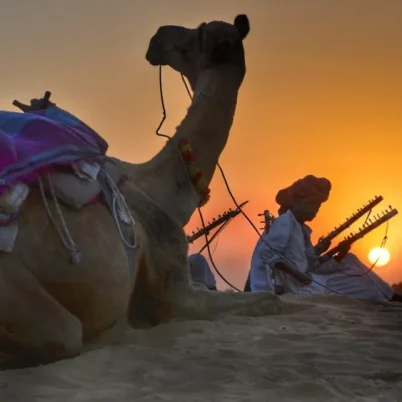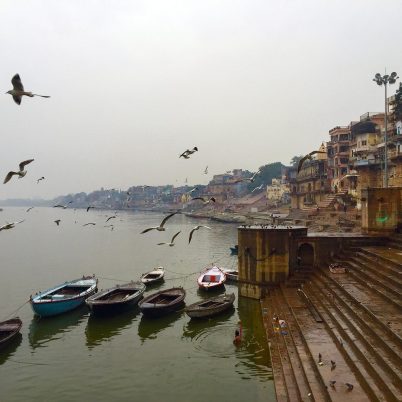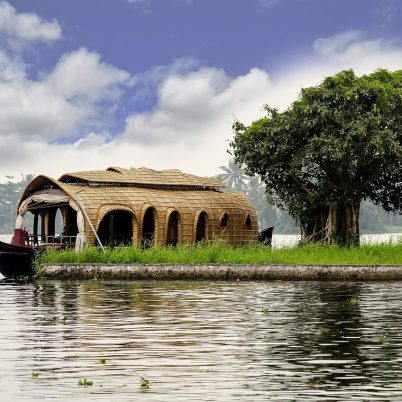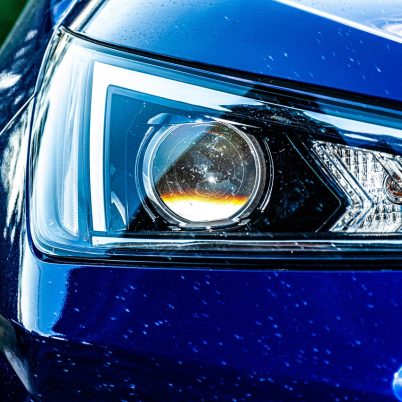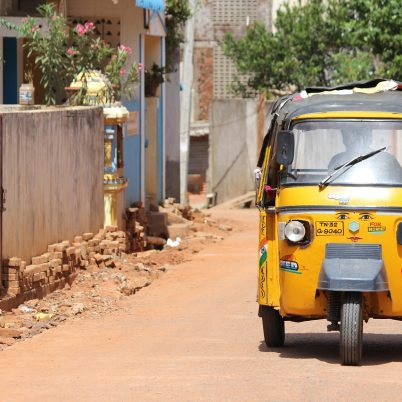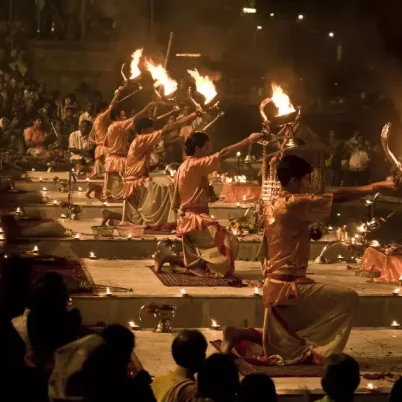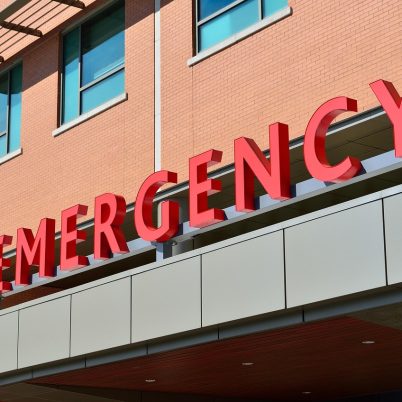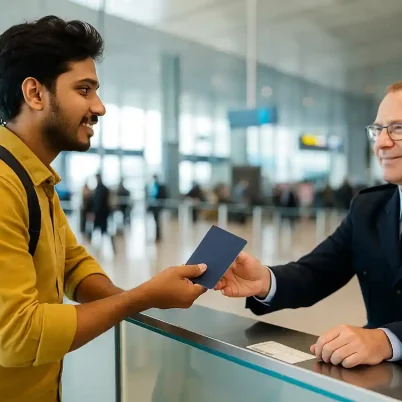
If you ask us “Is it safe to travel in India?”, we would say, “Yes, absolutely!” Of course, there are a few conditions to this statement but in general, India is a safe country to travel to. With the highest population in the world, scary news articles, and constant border tensions, it is still difficult to not put India on your travel bucket list. From the incredible beauty of the country to its warm hospitality, India has a vibe of its own. So we have put together a guide to safety while traveling in India.
Is it safe to travel in India?
It is natural to wonder if it is safe to travel in India, owing to all the incidents that keep cropping up in the news. And with the diversity, chaos, and crowds, India can be overwhelming at times. However, it is generally a safe country for travelers. With that being said, there are still a few issues that plague the country with respect to travel and tourism.
Political unrests
India and Pakistan are often in a state of unrest over the state of Kashmir. Political violence is a risk, especially in Srinagar and the Kashmir Valley in the north, and some regions in northeast India. Make sure you check the current news and be alert for any suspicious behavior. Always check the security situation in Kashmir before planning a trip to that region.
Scams
India, like many other countries, has its fair share of tourist scammers. The scams come in many forms, such as begging, donations, ATM scams, property scams, and more. Try to steer clear of anyone who tries to approach you for a cause, and make sure you keep your valuables safe.
Be wary when visiting India’s street markets and shops. Even though India is not a very expensive country, if it sounds too good to be true, it probably is.
Sometimes, the local police might ask you for a road fee. Do not pay it. However, tolls are legal and you have to pay them.
Pickpocketing and Petty Theft
Where there are crowds in India, there is a possibility of pickpockets in the area. And since India is crowded in most places, you need to be careful with your belongings and valuables. You could experience bag-snatching or thefts even in hotel rooms if you are not careful.
Food and Hygiene
Hygiene in India is not the best in the world. While most fine dining restaurants will take utmost care of hygiene, some smaller places and street food might not bode well with foreign tourists. Indian food is also spicier than many people can handle.
While we would recommend that you try the authentic street food of India, it can be a risky business. So if you want to try street food, eat only that which is prepared freshly in front of you. Also make sure you carry some instant foods with you, in case Indian food does not agree with you. There are also many fast food chain restaurants in India, such as McDonald’s, KFC, Burger King, and Pizza Express which you can opt for.
Drink only bottled water from reliable brands like Bisleri and Kinley. Do not drink tap water anywhere in India.
Read more: Is street food in India safe to eat?
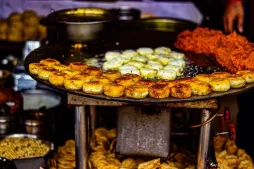 Street food in India
Street food in India
Illnesses
Malaria, tuberculosis, and many other viruses and bacterial diseases can be found in India. Animals can also carry diseases like rabies and herpes B. The Indian government requires vaccines against yellow fever and recommends a flu shot and some other vaccinations.
Check with your country and India for all the vaccines recommended before flying to India. Check for any disease outbreaks in the country. Also buy travel insurance which covers health emergencies and medical evacuations.
Climate and natural disasters
In a country as naturally diverse as India, every region in every season has its own weather issues. From snowstorms to earthquakes and floods, India can experience anything.
In summer months, many parts of the country face severe heat waves. Monsoons bring in floods in many parts of the country, while there may be snowstorms in the northern part of India during winters. Earthquakes, while uncommon, can also occur in the northern regions.
Transport
Local transport in India is quite inexpensive, but tourists are often scammed with much higher rates than applicable. Always try to find an auto rickshaw or taxi with a properly running meter. Also try to get an estimate of the transport rates beforehand, so you can haggle with the drivers. Hire reliable cars and drivers, or ask the hotel to arrange cabs for you. There are also some cab services like Ola and Uber, which offer a fair price and work in most cities across India.
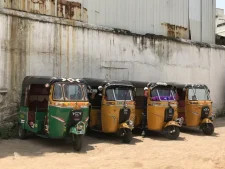 Autorickshaws in India
Autorickshaws in India
Harassment
Unfortunately, street harassment is common in many places in India. You will experience staring, or attempts to start a conversation, although in most places, people will keep their distance from you. You might also experience cat-calling from strangers in India.
For women, especially, this is a cause for concern. Groping is a common occurrence in crowds, so we would recommend avoiding crowds as much as you can. There is also a danger of more serious assaults, so exercise caution. Avoid traveling alone in quiet areas, and during the night. If you feel unsafe at any point, do not hesitate to draw attention to yourself, or go to a police station.
Is India safe for women travelers?
There are a few problems that India shares with many other countries when it comes to solo and women travelers. Locals are generally welcoming, but it is not uncommon for female travelers to face the occasional staring or catcalling in many parts of India. While this is no reason to avoid a trip to India, female travelers do need to follow more precautions, especially if they are traveling solo.
If you are a female solo traveler in India, it is highly recommended that you choose reservation for women wherever possible. All trains and buses have seats reserved for women, so choose those. Keep a safe distance from men, since you will be met with unwelcome staring and ogling especially as a foreign tourist. Keep someone informed about your whereabouts at all times.
Read also: Traveling as a solo woman in India
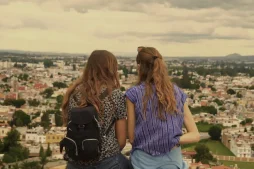 Is India safe for female travelers?
Is India safe for female travelers?
Safety tips while traveling in India
- Dress modestly, especially in rural areas and religious sites.
- Make sure you get all the vaccinations recommended by your country before traveling to India.
- Pack essential medicine from home in case of emergencies.
- Be mindful of your belongings and valuables.
- Be up to date on the latest news and avoid areas experiencing civil or political tensions.
- Research as much as you can about the places you will be visiting.
- Contact your embassy or consulate if you face any trouble in India.
- If possible, learn some local words and etiquettes to help you communicate better with the people.
- Avoid going out alone at night in isolated areas, especially women travelers.
- Keep the emergency contact numbers with you at all times:
- Police – 100
- Ambulance – 102
- Fire – 101
- Women Helpline – 1091
- National Emergency Number – 112
Some of the safest places in India
While you will be safe in most places in India, incidents can happen anywhere in the country, or even the world. But there are some places in India which are comparatively safer than the rest.
Mumbai
Mumbai is one of the safest places in India, and also much loved by foreign tourists. The city that never sleeps welcomes travelers at any time of the day or night with equal enthusiasm. Home to one of the largest slums in the world and the most expensive house in the world, Mumbai is a city of contrasts happily co-existing.
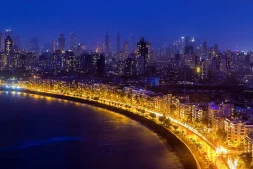 Mumbai
Mumbai
Kolkata
Kolkata has the lowest rate of crime in India, making it one of the safest cities in the country to visit. The city will take you to a bygone era, with its impressive architecture, trams, and delicious street food.
Visit the iconic Howrah Bridge, Victoria Memorial Hall, Eden Temple, Mother House, or Prinsep Ghat.
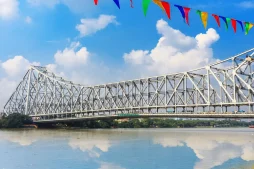 Kolkata
Kolkata
Kerala
Kerala is one of the safest places in India, and Cochin, one of the safest cities. The state has well-maintained roads and friendly, educated people. Kerala also has much better hygiene than the rest of the country, as it is one of the cleanest states in India.
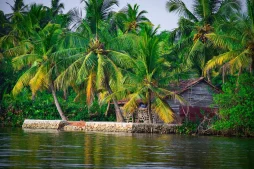 Kerala
Kerala
Goa
Goa is quite the paradise for beaches and parties. It is safe to travel around this state, but it is still better to avoid being out past midnight, especially if you are a female solo traveler. When it comes to beaches, you can wear a bikini on the private beaches, as you will be met with stares on public beaches.
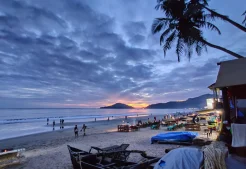 Goa
Goa
Pune
Pune in Maharashtra is known as the Oxford of the East, owing to the many educational institutions in the city. It is one of the safest cities in India, with much to explore. There are many historic forts and iconic temples around the city that you can visit. If you love nature and history, Pune is a great place to visit.
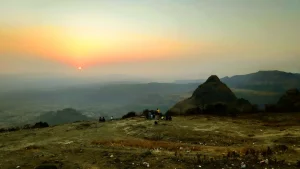 Pune
Pune
Chennai
Chennai has many travel spots perfectly safe for tourists to visit, from beaches and temples to museums and educational institutions. Visit Marina Beach, IIT Madras, Besant Nagar Beach, and the San Thome Church.
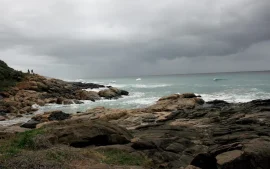 Chennai
Chennai
We hope this small guide was helpful to you! If you want to plan a trip to India, contact us and we will help you with booking the safest accommodations and transport, so you can enjoy your trip to this beautiful country without any worries!
Frequently Asked Questions
India is generally a safe country to travel to, although there are a few issues like political unrest, scams, illnesses, and harassment plaguing a few parts of the country.
Yes, India is as safe as many other countries for girls, although a few regions are better avoided. Some of the safest places in India for girls are Mumbai, Pune, Kolkata, Kerala, Goa, Chennai, and Pondicherry.
Kolkata is the safest city in India, as well as one of the safest cities for women.
While India is safe for LGBTQ+ in most regions, a few places where the community is wholeheartedly accepted include Mumbai, Delhi, Goa, Bangalore, and Tamil Nadu.
helping you travel your way
Everything you need to know about India is here We have tried writing about everything you may need help with for your trip to India, If you need help in planning a trip to India Get in touch with us to to plan your trip of a life time.



